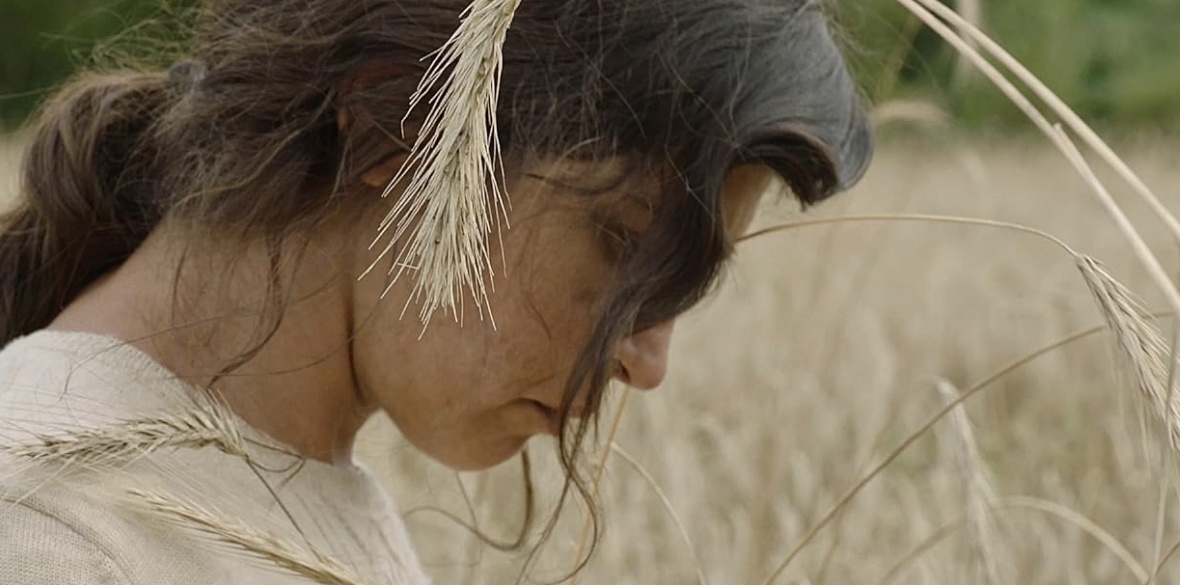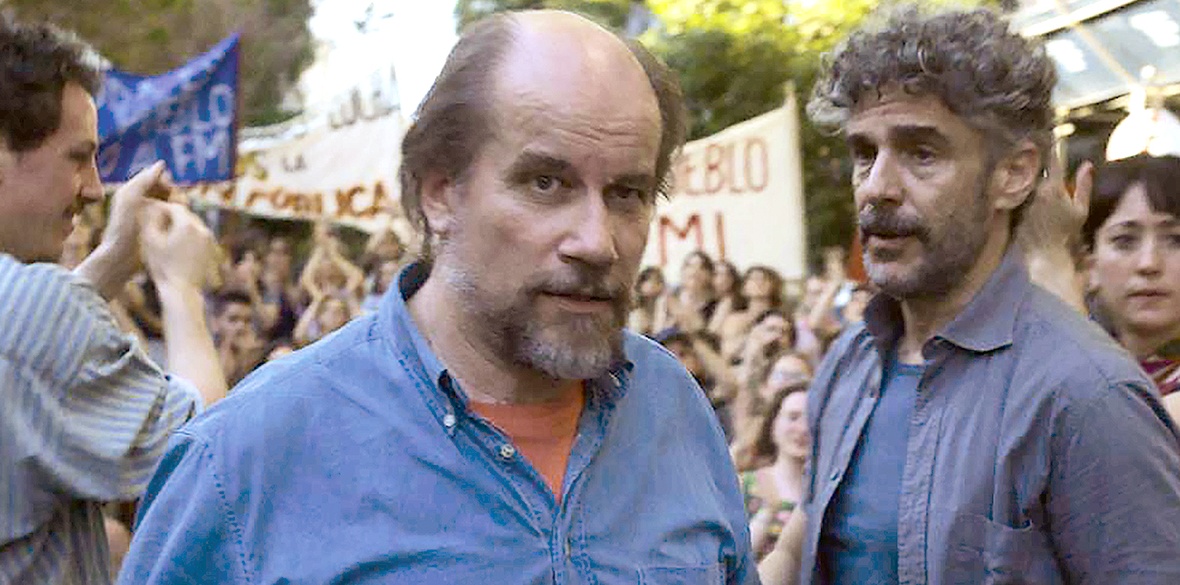This is the last article you can read this month
You can read more article this month
You can read more articles this month
Sorry your limit is up for this month
Reset on:
Please help support the Morning Star by subscribing here
IN the beautiful Basque country, the 71st San Sebastian Film Festival maintained its innovative spirit, and audacious political character.
This year the Golden Shell Award went to Spanish director Jaione Camborda for The Rye Horn, a film about solidarity and sisterhood set during the Franco regime.
Maria, a solitary midwife, who lives on an island near Galicia, secretly helps young women terminate their pregnancies, but when one of her patients dies, she must flee to Portugal. The escape drives her out of solitude, as always, when a woman comes forward to help.
The whole movie merges landscapes and character with such force that, once seen, you will never forget it. A quiet, yet highly dramatic film, that doesn’t try for polemic but simply tells what looks very much like the unalloyed truth. Its win, however, was unexpected as it is fairly a conventional production.
The festival showcased a great swarm of Latin American movies.
Puan by Benjamin Naishatat and Maria Alche, is the story of a university professor, Marcello Pena, who has devoted his life to teaching philosophy at the Public University of Buenos Aires.
A prodigious thinker, but a clumsy man, he lives in a modest house with his activist wife. When his mentor Professor Caselli dies unexpectedly, Marcello is the most obvious candidate for head of Department. However, his plans turn upside down with the surprising appearance of another protege, charismatic and sexy, Rafael Sujarchuk.
Extremely funny and light-hearted, the whole story seems to revolve around the empty seat of the head of the department, but as it develops instead sees the closing of the faculty, and the academic solidarity between students.
The result is a remarkable political film that offers strong support for the cause of public education. A highly entraining comedy, it carries a powerful message against the Argentinian far-right presidential candidate Javier Milei, and his plans to abolish free healthcare and privatise the education system. The election is coming up this month.
Also, Puan has many clever references and reflections on Argentine society. The fixed idea persists that its thinkers maintain themselves in dutiful inferiority to the philosophers of France and Germany, and yet arrogantly consider themselves superior to the rest of Latin America, as revealed in a scene where Marcelo mistakes a Bolivian professor for a cleaner.
Another Argentinian film-maker, Martin Rejtman, escapes Argentina, setting his new film in Chile, as if to find a neutral terrain, far from the tumultuous political climate. The Practice sees yoga teacher Gustavo become obsessed with an absurd cult of wellness.
An entertaining comedy, packed with jokes, but beneath the humour Rejtman makes deeper points. It seems impossible for Gustavo to escape tensions and problems as he must face a broken knee, earthquakes and most of all his fear of life.
Blondie is a promising debut by young female director Dolores Fonzi who questions the role of the mother in modern Argentina. A teenage mother struggles to care for her daughter and seeks support from her mother and sister.
Without the strictures of fascist traditionalism, a new family balance has to be built, not vertical but horizontal, with a new assessment of responsibilities and duty, and one based on solidarity and real bonds.
It is an excellent first feature because of its care and refusal to indulge its audience with either sentiment or melodrama. A wholly remarkable film whose oddities as a first-time feature seem less to to be flaws than the mark of a film-maker finding her voice.
Among the Spanish films that deserved attention was Fernando Trueba and Javier Mariscal’s They Shot the Piano Player. It is both homage and investigation, delving into the life of the young Brazilian pianist Tenorio Jr, who went missing one night in Rio in 1976 under mysterious circumstances.
A docu-animation, it describes how a New York Times journalist becomes obsessed by the disappearance of the musician while researching a book on bossa nova.
Consisting of a mix of interviews with musicians, including luminaries Joao Gilberto and Gaetano Veloso, the movie explores the personal and political life of Tenorio Jr and his disappearance, that seems to have been connected to Operation Condor and the Latin American dictatorships of the ’70s.
It is a masterpiece of inventive animated fantasy, which very well captures the tragic end of a talented and innocent musician, accused of nothing more, seemingly, in the end than his comradeship and intellectual “communist tendency,” kidnapped and murdered on the way to buy a sandwich.













